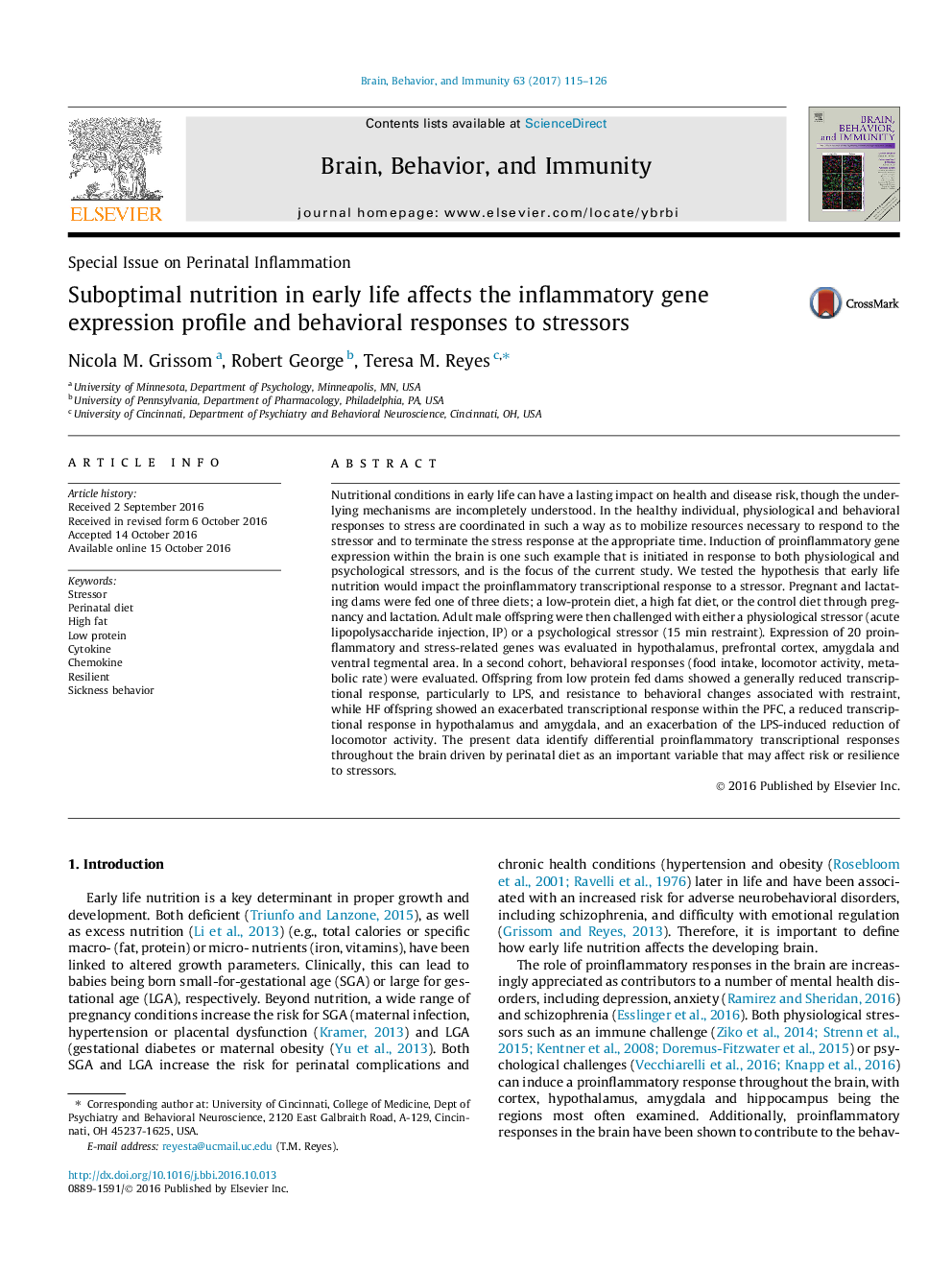| Article ID | Journal | Published Year | Pages | File Type |
|---|---|---|---|---|
| 5040667 | Brain, Behavior, and Immunity | 2017 | 12 Pages |
â¢Poor quality perinatal diet affects adult response to stressors.â¢Suboptimal diet leads to a blunted CNS proinflammatory response to LPS.â¢Maternal high fat diet exacerbates the proinflammatory response in PFC.â¢Low protein offspring show reduced sickness behavior.â¢High fat offspring have a potentiated locomotor reduction to LPS.
Nutritional conditions in early life can have a lasting impact on health and disease risk, though the underlying mechanisms are incompletely understood. In the healthy individual, physiological and behavioral responses to stress are coordinated in such a way as to mobilize resources necessary to respond to the stressor and to terminate the stress response at the appropriate time. Induction of proinflammatory gene expression within the brain is one such example that is initiated in response to both physiological and psychological stressors, and is the focus of the current study. We tested the hypothesis that early life nutrition would impact the proinflammatory transcriptional response to a stressor. Pregnant and lactating dams were fed one of three diets; a low-protein diet, a high fat diet, or the control diet through pregnancy and lactation. Adult male offspring were then challenged with either a physiological stressor (acute lipopolysaccharide injection, IP) or a psychological stressor (15 min restraint). Expression of 20 proinflammatory and stress-related genes was evaluated in hypothalamus, prefrontal cortex, amygdala and ventral tegmental area. In a second cohort, behavioral responses (food intake, locomotor activity, metabolic rate) were evaluated. Offspring from low protein fed dams showed a generally reduced transcriptional response, particularly to LPS, and resistance to behavioral changes associated with restraint, while HF offspring showed an exacerbated transcriptional response within the PFC, a reduced transcriptional response in hypothalamus and amygdala, and an exacerbation of the LPS-induced reduction of locomotor activity. The present data identify differential proinflammatory transcriptional responses throughout the brain driven by perinatal diet as an important variable that may affect risk or resilience to stressors.
